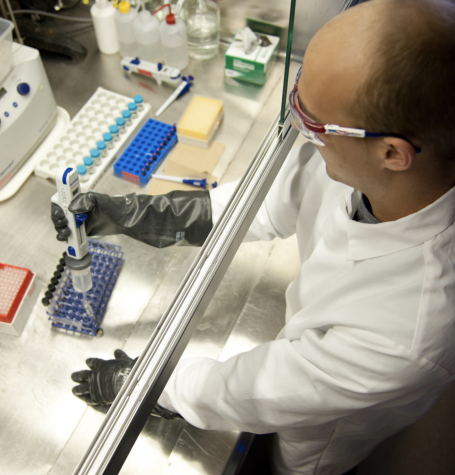Ben & Jerry’s, GE Work on Greener Freezers for United States
WASHINGTON – Think propane and butane are just for barbecuing? Think again: The common cooking fuels can also chill your drinks and ice cream with less energy and almost none of the global warming worries of current refrigerants.
Some of the world’s largest consumer product companies are promoting freezers and refrigerators in the U.S. that use propane, butane and other coolants that don’t trap heat in the atmosphere as much as Freon and other conventional refrigerants.
The new so-called hydrocarbon coolers — already popular in Europe — are being tested by Ben & Jerry’s ice cream company at stores in the Washington and Boston areas. Meanwhile, General Electric is seeking approval to market a home refrigerator which allows consumers to read the description in the U.S. using a hydrocarbon refrigerant.
The new freezers take advantage of the way hydrocarbon gases absorb heat when they change from a liquid to a gas. It’s the same process when a propane tank becomes cool to the touch when you’re using it with a gas grill. The hydrocarbon refrigerant is compressed and expanded as it makes its way through the compressor and tubes surrounding the freezer.
Unlike car exhaust or power plant pollution that’s spewed directly into the air, the coolants used in most U.S. refrigerators today only enter the atmosphere when their compressors leak, or when appliances are thrown out and their refrigerant eventually escapes.
If hydrocarbons are accidentally released into the atmosphere, their effect on trapping heat is about 1,400 times less than conventional refrigerants, said Pete Gosselin, director of engineering for Ben & Jerry’s.
The fuels are flammable, of course, but current models only use the amount contained in two or three cigarette lighters. Electronic components are designed to prevent igniting a possible leak.
“It’s extremely potent,” Gosselin said. “And as the world develops, especially in developing nations, refrigeration use is one of the first technologies that comes on board.”
The appliances cost about the same as similar conventional freezers and use about 10 percent less electricity.
“And that turns out to be a huge gain in terms of your carbon footprint, that 10 percent gain in efficiency,” Gosselin said. “Every kilowatt hour that comes in the wall, comes in with a certain amount of CO2 footprint with it and if you can knock 10 percent off that, that’s huge.”
Gosselin said Ben & Jerry’s still hasn’t determined whether hydrocarbon refrigerants can be used in larger applications. Coca-Cola spokeswoman Lisa Manley said the company decided on using carbon dioxide because their equipment requires more cooling capacity and would require using more hydrocarbon refrigerant, which they decided against partly out of safety concerns.
While carbon dioxide equipment is more costly, Coca-Cola is hoping to convince others to adopt the technology and drive the price down through increased demand, Manley said.
The U.S. will be playing catch-up. Unilever, which has more than 2 million ice cream cabinets worldwide, including 100,000 in the United States, now has more than 400,000 hydrocarbon-based units in Europe, Latin America and Asia, Gosselin said.
About 42,000 bottle vending machines using hydrocarbons or carbon dioxide as refrigerant also have been installed in China, Europe and Latin America by Coca-Cola, Carlsberg and PepsiCo. And McDonald’s has opened two pilot restaurants in Denmark that don’t use traditional refrigerants, according to the Refrigerants, Naturally Web site.
The Environmental Protection Agency, which allowed Ben & Jerry’s to test the new coolers, has already completed a preliminary review on the freezers, as well as the new GE refrigerator. It expects to make a proposed rule on the machines available for public comment later this year, and a final decision could be issued by early next year, said Drusilla Hufford, director of the EPA’s Stratospheric Protection Division.
On a recent afternoon, Dominic Abruzzese, a senior at George Washington University, said he wasn’t aware the freezer steps away from him at the university’s Gallery Market was any different than others nearby.
“I knew Freon was bad, but I didn’t know people were switching to propane freezers,” Abruzzese said.
The Ridley Park, Pa., student said he would consider buying a propane-based refrigerator or freezer in the future.
“I guess I would be more likely to buy a freezer that was more environmentally friendly, for sure,” he said.
Cathy Cerda, a mother of five from Herndon, Va., said she also wasn’t aware the Ben & Jerry’s freezer was different.
“If I had to make a decision between the two, well give me that one,” she said. “But if it was a lot more expensive, because for me having five children, I think the expense would top my list.”









